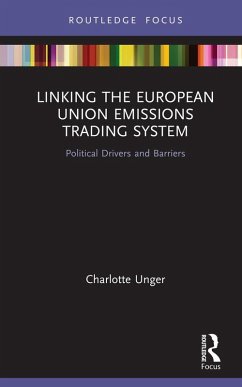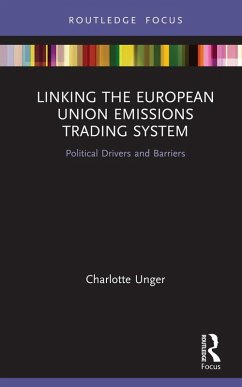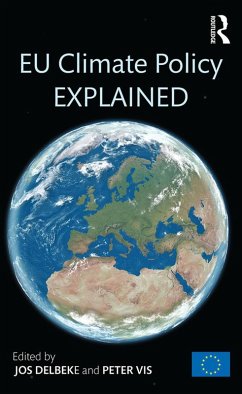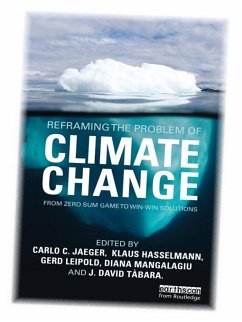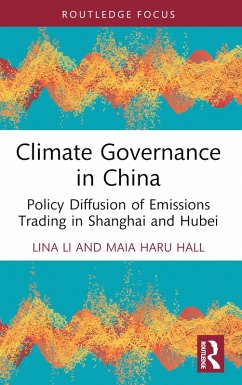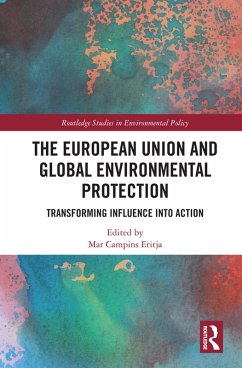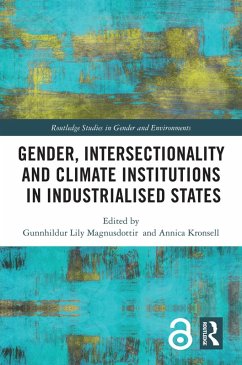
The Evolution of Carbon Markets (eBook, ePUB)
Design and Diffusion
Redaktion: Wettestad, Jørgen; Gulbrandsen, Lars
Versandkostenfrei!
Sofort per Download lieferbar
41,95 €
inkl. MwSt.
Weitere Ausgaben:

PAYBACK Punkte
21 °P sammeln!
Carbon markets are developing and expanding around the world, but how and to what extent is their design shaped by learning and interaction between them? How do these markets function and what is the role of design?Carrying out a ground-breaking analysis of their design and diffusion, this book covers all the major carbon market systems and processes around the world: the EU, RGGI, California, Tokyo, New Zealand, Australia, China, South Korea and Kazakhstan. It offers a systematic, in-depth discussion and comparison of the key design features in these systems with expert contributors exploring...
Carbon markets are developing and expanding around the world, but how and to what extent is their design shaped by learning and interaction between them? How do these markets function and what is the role of design?
Carrying out a ground-breaking analysis of their design and diffusion, this book covers all the major carbon market systems and processes around the world: the EU, RGGI, California, Tokyo, New Zealand, Australia, China, South Korea and Kazakhstan. It offers a systematic, in-depth discussion and comparison of the key design features in these systems with expert contributors exploring how, and to what extent, these features have been shaped by central policy diffusion mechanisms and domestic politics.
By focussing on the specific design features of the instruments used, this volume makes important contributions to diffusion theory, highlighting how ETS diffusion processes more often have resulted in design divergence than convergence, and discussing the implications of this finding for the vision of linked systems in the post-Paris era. It will be of significant interest to a broad audience interested in the emergence, evolution, functioning and interaction of carbon markets.
Carrying out a ground-breaking analysis of their design and diffusion, this book covers all the major carbon market systems and processes around the world: the EU, RGGI, California, Tokyo, New Zealand, Australia, China, South Korea and Kazakhstan. It offers a systematic, in-depth discussion and comparison of the key design features in these systems with expert contributors exploring how, and to what extent, these features have been shaped by central policy diffusion mechanisms and domestic politics.
By focussing on the specific design features of the instruments used, this volume makes important contributions to diffusion theory, highlighting how ETS diffusion processes more often have resulted in design divergence than convergence, and discussing the implications of this finding for the vision of linked systems in the post-Paris era. It will be of significant interest to a broad audience interested in the emergence, evolution, functioning and interaction of carbon markets.
Dieser Download kann aus rechtlichen Gründen nur mit Rechnungsadresse in A, B, BG, CY, CZ, D, DK, EW, E, FIN, F, GR, HR, H, IRL, I, LT, L, LR, M, NL, PL, P, R, S, SLO, SK ausgeliefert werden.





